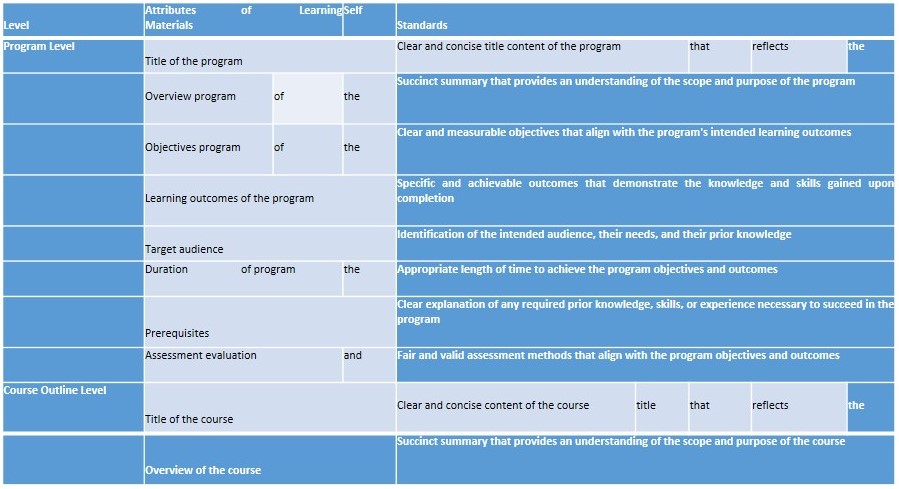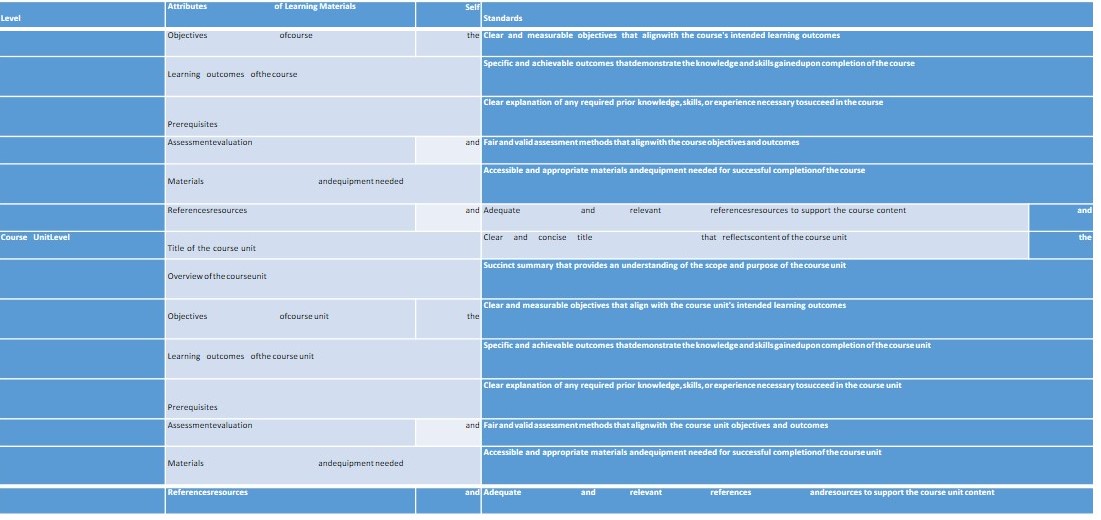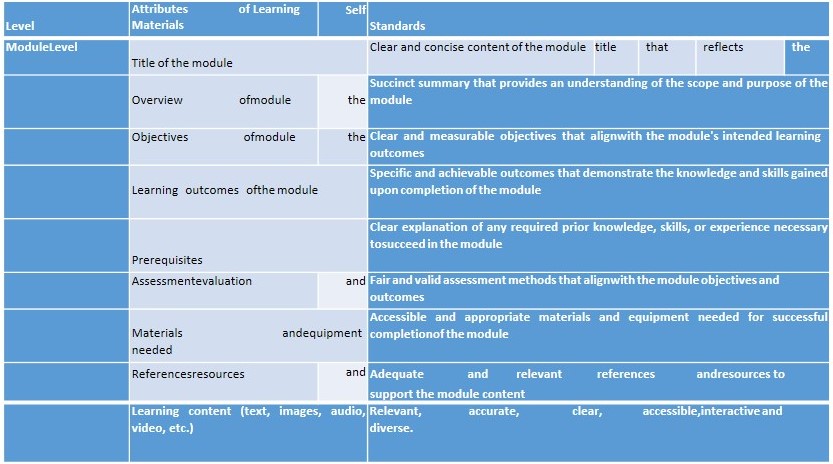· Interactivity: Interactive elements such as quizzes, simulations, and games, encourage learners to participate actively in the learning process, which can help them retain information better. This keeps learners engaged and motivated
· Multimedia Compatibility: Using multimedia elements such as text, images, audio, and video in self-learning materials helps learners comprehend and remember information better.
· Clarity and Conciseness: Avoiding lengthy explanations and technical jargon that can confuse learners is essential. Clarity and conciseness help learners retain information and make the learning process more effective.
· Accessibility: Materials are designed with accessibility in mind, and tutors and content developers use captioned videos, provide alternative text for images, and ensure compatibility with assistive technologies.
· Feedback: Feedback comes in the form of quizzes, self- assessments, or other tools that allow learners to gauge their understanding and adjust their learning strategies accordingly.
Design and Format of Self Learning Materials
Preparation of self-learning materials will be in accordance with the university’s academic standard guidelines for all regular programs to ensure compliance with program and course requirements for the award of degree, diplomas and certificates. The following shall define the structure of all SLMs:
Table 3: Design and Format of Self Learning Materials
· Multimedia Compatibility: Using multimedia elements such as text, images, audio, and video in self-learning materials helps learners comprehend and remember information better.
· Clarity and Conciseness: Avoiding lengthy explanations and technical jargon that can confuse learners is essential. Clarity and conciseness help learners retain information and make the learning process more effective.
· Accessibility: Materials are designed with accessibility in mind, and tutors and content developers use captioned videos, provide alternative text for images, and ensure compatibility with assistive technologies.
· Feedback: Feedback comes in the form of quizzes, self- assessments, or other tools that allow learners to gauge their understanding and adjust their learning strategies accordingly.
Design and Format of Self Learning Materials
Preparation of self-learning materials will be in accordance with the university’s academic standard guidelines for all regular programs to ensure compliance with program and course requirements for the award of degree, diplomas and certificates. The following shall define the structure of all SLMs:
Table 3: Design and Format of Self Learning Materials



STAFF SUPPORT
To ensure that faculty are well-equipped to deliver high-quality online courses, Lukenya University provides the following training and support:
Provide training on effective online teaching strategies, including how to use course authoring tools, manage online discussions, and deliver effective online lectures.
ii. Provide technical support to faculty on the use of course platforms and tools.
iii. Offer opportunities for faculty to collaborate and share best practices with each other.
With regard to continual upgrading of faculty on skills and methods/pedagogy in ODEL; and orientation of faculty after technology changes, as well as orientation and capacity building for support staff in ODEL, the University conducts regular training workshops coupled with benchmark visits.
The University has equipped the E-Learning Centre to provide mechanisms and resources t for faculty and staff support for ODEL with regard to ODEL Pedagogy and curriculum resources production. The further facilitates staff to:
Access appropriate, adequate and timely support;
Execute ODEL programmes with specific emphasis on financial, administrative and any other form of support; Access e-library services;
Design, develop, and integrate multimedia materials and;
Navigate through the LMS and generate relevant reports.
To ensure that faculty are well-equipped to deliver high-quality online courses, Lukenya University provides the following training and support:
Provide training on effective online teaching strategies, including how to use course authoring tools, manage online discussions, and deliver effective online lectures.
ii. Provide technical support to faculty on the use of course platforms and tools.
iii. Offer opportunities for faculty to collaborate and share best practices with each other.
With regard to continual upgrading of faculty on skills and methods/pedagogy in ODEL; and orientation of faculty after technology changes, as well as orientation and capacity building for support staff in ODEL, the University conducts regular training workshops coupled with benchmark visits.
The University has equipped the E-Learning Centre to provide mechanisms and resources t for faculty and staff support for ODEL with regard to ODEL Pedagogy and curriculum resources production. The further facilitates staff to:
Access appropriate, adequate and timely support;
Execute ODEL programmes with specific emphasis on financial, administrative and any other form of support; Access e-library services;
Design, develop, and integrate multimedia materials and;
Navigate through the LMS and generate relevant reports.